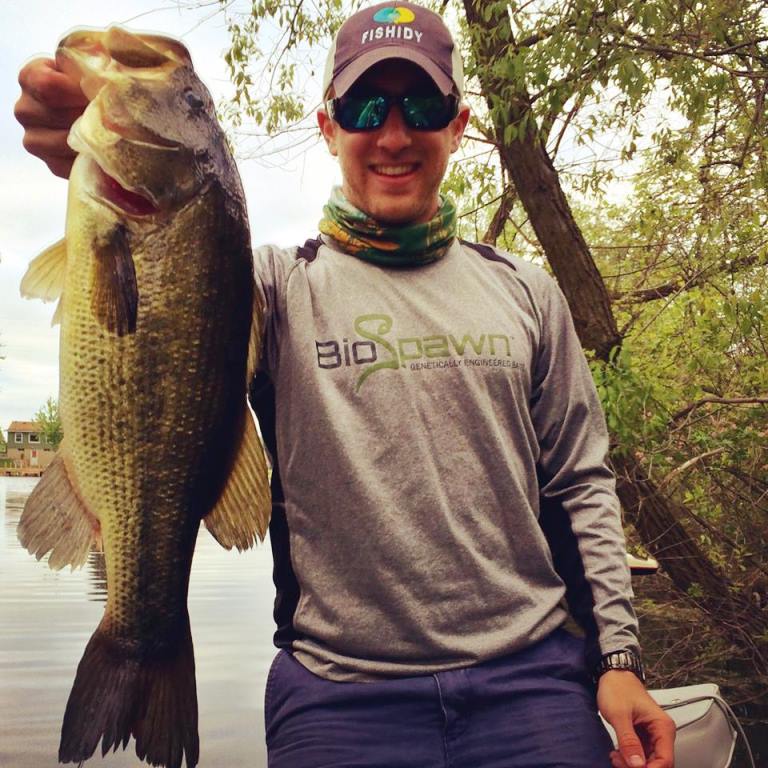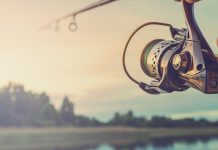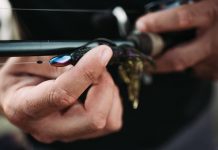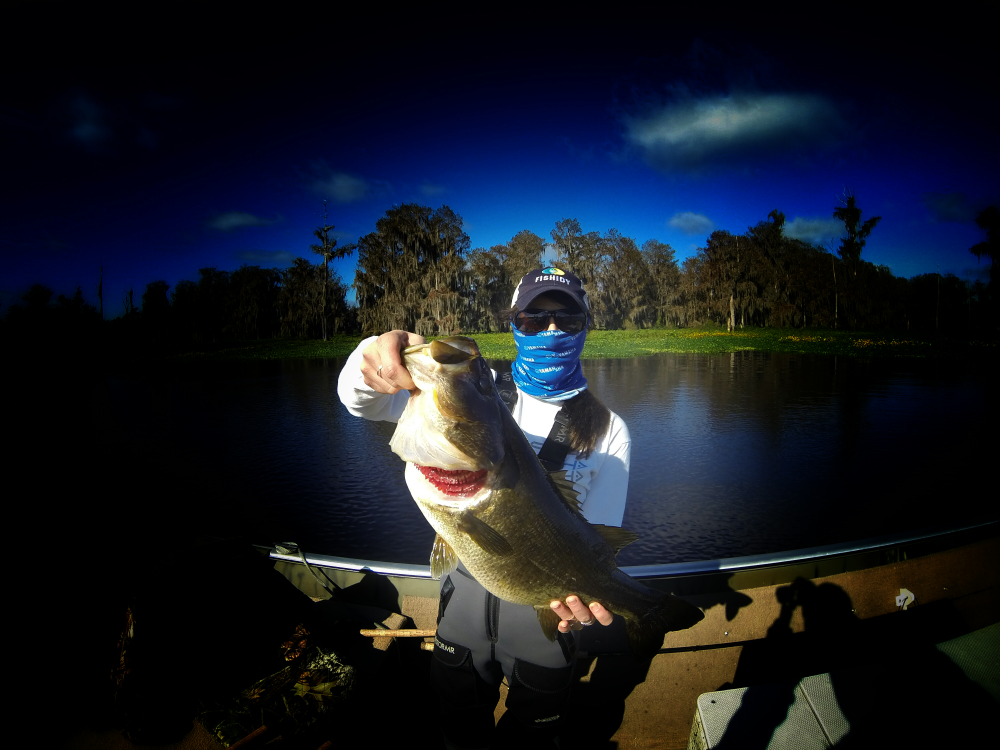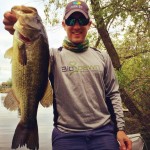
1Throw a Frog
There is only one thing more exciting than a top water explosion, and that is watching a big female on a bed charge your frog! Try fan casting a classic bedding area with your plastic amphibian before approaching it with your boat. This can help reduce spooking fish off beds, and it can help you locate them before you run them over. The commotion on the surface draws strikes from decent distances, but try to attack white spots or holes in surface vegetation first as they may hold bedding fish.
Be sure to have a wacky or weightless texas rigged stick worm on the ready. Typically, the bass will eat the frog, but when fry guarding or cruising they may just swat at the bait. Following up with a finesse presentation can secure a few additional fish per outing. I use this same tactic when I fish slop, as well. Most times I will not throw the frog back into the area I had a strike. Instead, I go to that stick worm to generate the second bite since it seems to be more effective.
A few quality colors to try during the spawn would be a bluegill pattern, all black, or one with a red belly. Depending on the bite and the cover I will use both a popping frog and a traditional frog. Keep in mind, the more cover there is the less often I use a popping frog.
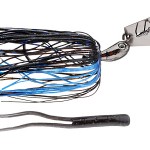
2Chatterbait
A chatterbait is one of the more underutilized tools of the spawn. This bait is equally as effective in pre-spawn as it is in the spawn. Try to approach mildly weedy areas, sea walls, or rock banks that hold beds with this bait. Bass are extremely irritated by this bait as it creates quite a racket as it comes through the water. If your cast gets fouled, just rip the bait clean. Many times that will induce a strike! Flats are another great area to try casting the chatterbait across as the vibration draws bass to the bait.
Typically I will pair this with a smaller, 3-3.5” swimbait or a Kalin’s Scrub Tail. Black/blue, bluegill, and chartreuse are all great starting points for color schemes.
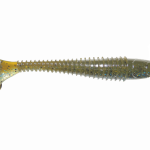
3Swim Bait/Jig
The last bait that I always have tied on during the spawn is a swim bait or a swim jig. It’s a more subtle approach from the other two baits I have talked about, but the effect is still the same. Just like a chatterbait, this bait can be fished along structure, through weeds, and along defined structures or edges. The one advantage that I utilize is its near weedless capabilities. Many times I will fish this similar to a frog along mats, through thick weeds, or just under the surface. While fishing in emergent vegetation where beds are present try and bring the bait across to any “holes” where you feel are beds and let the bait fall to the bottom. Any fish on beds will grab the bait to move it, but due to the size of the swim jig or swim bait it nearly grabs a hook each time.
When fishing a swim bait I like to use a ¼ oz lead or scrounger head and slowly roll it through weed flats or spawning areas. I typically will have a 3.8” or 5” Kalin’s Sizmic Shad. Bluegill, crappie, or shiner colors can be really good! Since we see clearer water in the spring, I will lean towards more translucent colors.

